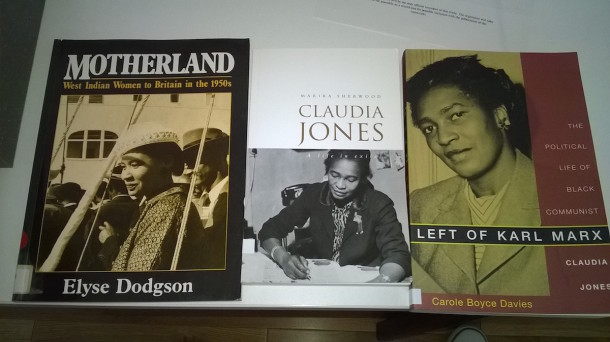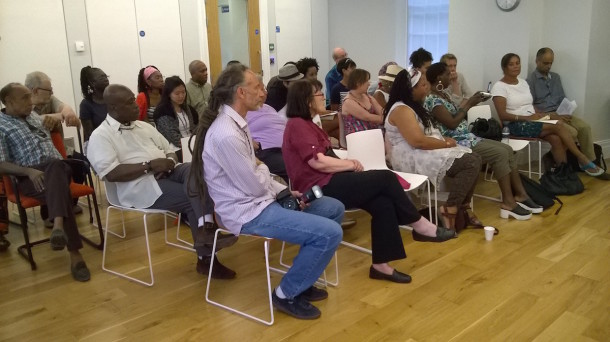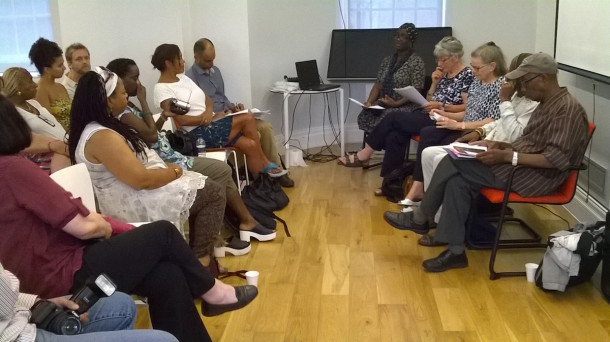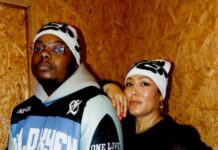On the 100th anniversary of the birth of political activist Claudia Jones the Black Cultural Archives (BCA) held events to mark her remarkable life and achievements.

Writing about Claudia Jones
There’s been many books articles and blogs written about black nationalist and political activist Claudia Jones. As well as being the founder of the West Indian Gazette and a committed communist, she played a big part in the creation of the Notting Hill Carnival.
When the U.S. decided to deport Claudia Jones in 1955 due to her membership of the Communist Party, it proved beneficial not only to the British Afro-Caribbean community, but to the cause of human rights worldwide.
It’s the 100th year anniversary of Claudia Jones’ birth, and the Black Cultural Archives celebrated with a series of talks and a walking tour, which included the sites where Claudia Jones lived and worked.
Janet Brown, former BCA Learning Manager, introduced the day.
“Today we want to unpack the life of Claudia. A lot of us know about her, but every time I go to an event about Claudia Jones, I learn something new. I feel that Claudia was a very powerful person. She was resilient and I think she’s left us a legacy.”

Speakers on the discussion panel were Shango Baku, who in 1987 founded Cultural Exchange through Theatre in Education, a charity that provided black history workshops in schools across the UK; Marika Sherwood, a member of the Black & Asian Studies Association, and a contributing writer on the book, ‘Claudia Jones: A Life in Exile’; Ruth Tompsett, who’s been involved with Notting Hill Carnival since the 1970’s, and created a History of Carnival Study module at Middlesex University; and Donald Hinds, a writer on the West Indian Gazette newspaper form 1958 to 1964.
Donald recounted first meeting Claudia: “In 1958 I was a bus conductor. Theo Campbell, who opened the first black record shop on Brixton Road, he got on my bus with the Gazette, asked me if I wanted to buy one. I said not only do I want to buy one, I want to write for it. He said fine, come down to the shop I’ll take you to see Miss Jones, and he did just that.
“She was an extremely attractive woman. She said, ‘You want to write, write something and bring it to me.’ So I did. I did my own poll on the black community, showed it to Claudia. She didn’t publish it, but hired me and from then on, my name was on the paper as Donald Hinds, City Reporter.”

The day had scheduled topics, including a look at archive material related to Claudia Jones, a 60-minute documentary called ‘Looking for Claudia’, and a discussion on the legacy of the Carnival.
“I felt that we should use today to unpack Carnival a bit,” said Janet Brown, “and to look at whether Carnival still has the emancipation nature about it. What does Carnival look like in education today? Are we still using Carnival to send campaign messages and protest messages?”
The afternoon was rounded off with live music in the BCA café from Helen McDonald of Yaaba Funk, before the Walking Tour set off from Lambeth Town Hall to Oval Station. Much was learned and plenty of memories shared on an invigorating afternoon.







